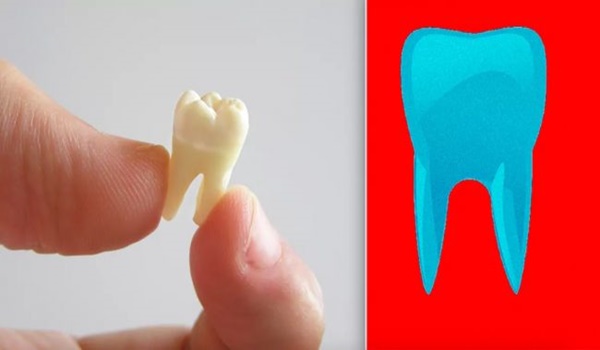The innovation of a group of scientists in Japan might revolutionize and even put an end to the traditional approach to tooth cavities.
Cavities are permanently damaged areas in the hard surface of your teeth, and they develop in small holes and openings.
Their traditional treatment is highly unpleasant and uncomfortable for many, so the innovation of a group of scientists in Japan might be the miracle we were all praying for since we were children!
Namely, a scientific team in Japan has developed a new experimental drug treatment that could help people regrow teeth.
Namely, scientists at Japan’s Kyoto University and the University of Fukui unveiled a new monoclonal antibody treatment that has been shown in experiments to stimulate the body to grow new teeth, as reported in the journal Science Advances.
They hope that their findings could be of help in the development of drugs needed in the cases of teeth loss in adulthood or the lack of teeth since childhood due to congenital conditions.
Yet, a press release on the study also revealed that the genes that affect tooth growth have far-reaching effects on development throughout the body, and some of the first iterations of the treatment actually caused more birth defects in the lab mice before the scientists got all the kinks.
Yet, they eventually discovered that blocking a gene called USAG-1 causes increased activity of Bone Morphogenic Protein (BMP), a molecule that determines the number of teeth that will grow in the first place, and allowed adult mice to regrow any that they were missing.
Next, scientists experimented with ferrets, and found that the outcome was the same.
Kyoto researcher and lead study author Katsu Takahashi, explained:
“Ferrets are diphyodont animals with similar dental patterns to humans. Our next plan is to test the antibodies on other animals such as pigs and dogs.”
Yet, this is not the first time scientists discover a drug that triggers the growth of new teeth.
Back in 2019, researchers at King’s College London found that the drug Tideglusib stimulated stem cells to regrow teeth. These stems are the building blocks of the entire human anatomy.
They injected the drug into the teeth of mice and their teeth were regrown.
Both human and mice teeth have a natural ability to rebuild some of their structure, but it is limited, but the use of this drug completely restored the damage.
Tideglusib is normally used in the treatment of Alzheimer’s.
However, it was found to turn off the enzyme GSK-3, which stops dentine from forming once a tooth had grown to its natural size.


